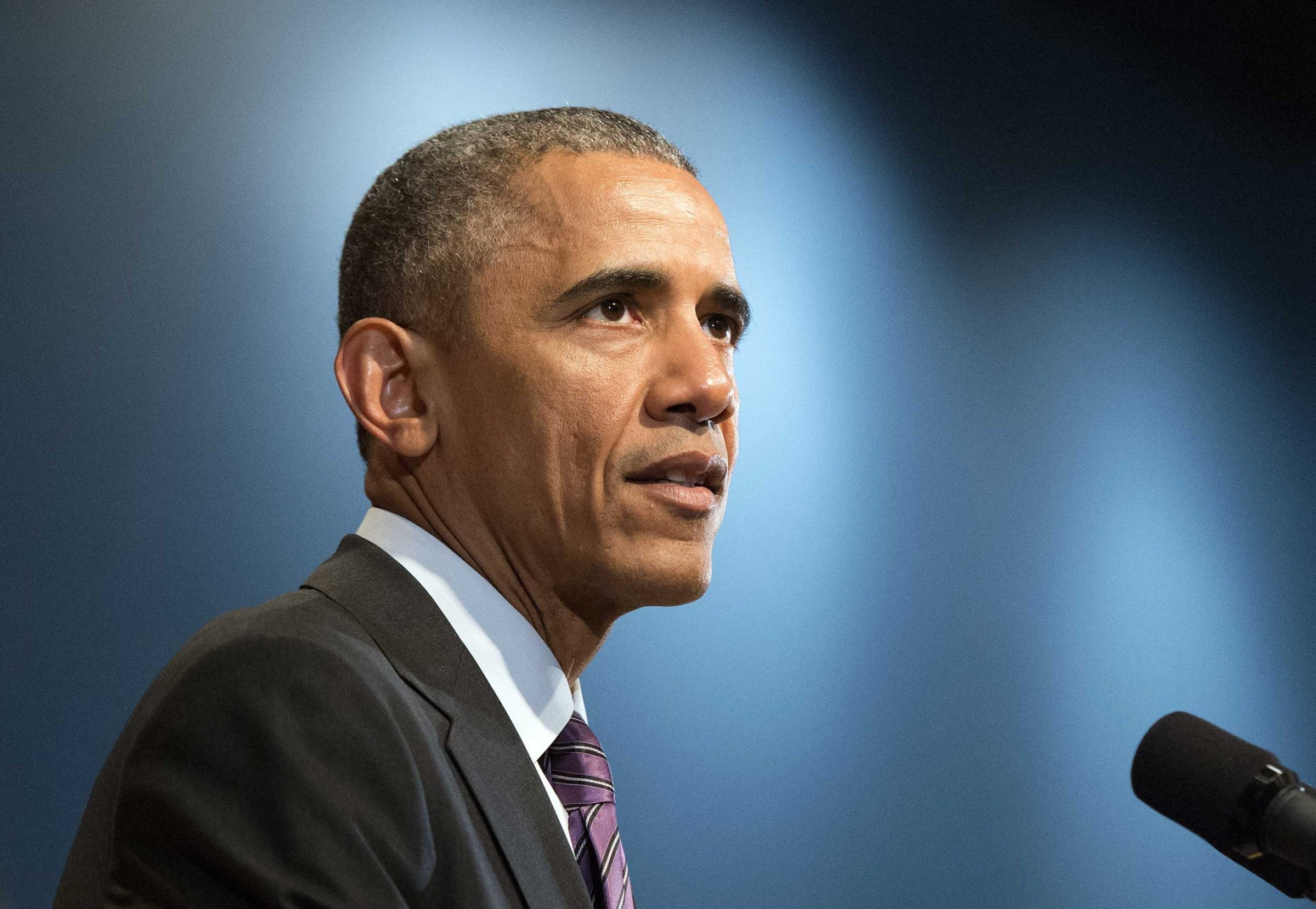
As America’s first black president, Barack Obama has walked a careful line on racial issues, trying to avoid controversy that could hurt his other priorities. As he prepares to become America’s first black ex-president, though, it is increasingly clear that he will not feel as hamstrung.
Over the course of a long day Monday, Obama talked about the importance of increasing economic opportunities for young black and Hispanic men, echoed the “black lives matter” slogan used by protesters of police shootings, pushed Democrats at a fundraiser to keep up the political fight on those issues in future elections and reflected on his parents’ interracial marriage in an interview with David Letterman.
With more than 20 months left to go in the White House, Obama has kept mum on his post-presidential plans and his press secretary, Josh Earnest, made clear that it is still too early for them to comment. But Monday’s calendar showed that Obama does not intend to follow in the footsteps of his immediate predecessor, George W. Bush, and disappear from public life. Instead, he seems headed toward a more active retirement like that of Bill Clinton.
The most telling moment appeared off camera, as he offhandedly told Letterman — who then repeated it, incredulously, to the studio audience of “The Late Show” after the commercial break — that he might take a month off after leaving office.
The day started at Lehman College in the Bronx, where Obama announced the launch of a nonprofit initiative building off his My Brother’s Keeper effort in the White House to help young minority males.
“The lives and the young men who are here today matter,” he said, repurposing a line about policing in black communities into a broader economic argument. As if to underscore the point, Obama’s remarks were briefly on split-screen on major cable news networks with breaking news about another incident in Baltimore, the site of recent unrest over the death of Freddie Gray while in police custody.
Obama went on to say that the young men he met at a roundtable before his speech, the ones he mentors as a part of My Brother’s Keeper and the kids from the streets of Ferguson to Appalachia are just like him. “When it comes down to it, we love these kids,” he said.
The president singled out a man in the audience named Alex Santos. Born in Puerto Rico, but raised in Brooklyn and the Bronx, he was, Obama said, “lucky” even though he’d seen his mom’s best friend shot and killed and his older brothers drop out of school and turn to drugs and violence. Obama said that with the help of his mother, Santos had changed his own circumstances. He earned his GED and now wants to work with kids as a coach. America, the president said, should be more like Alex.
“If Alex is able to overcome what he’s been through, we as a society should be able to overcome what we’ve been through,” he said. “If Alex can put the past behind him and look towards the future, we should be able to do the same.”
It was a line that spoke volumes about the president’s essential optimism on racial issues. Obama may be more ready to talk about the tricky politics of race than he has in the past, but he remains the candidate of hope and change.
More Must-Reads From TIME
- The 100 Most Influential People of 2024
- Coco Gauff Is Playing for Herself Now
- Scenes From Pro-Palestinian Encampments Across U.S. Universities
- 6 Compliments That Land Every Time
- If You're Dating Right Now , You're Brave: Column
- The AI That Could Heal a Divided Internet
- Fallout Is a Brilliant Model for the Future of Video Game Adaptations
- Want Weekly Recs on What to Watch, Read, and More? Sign Up for Worth Your Time
Contact us at letters@time.com